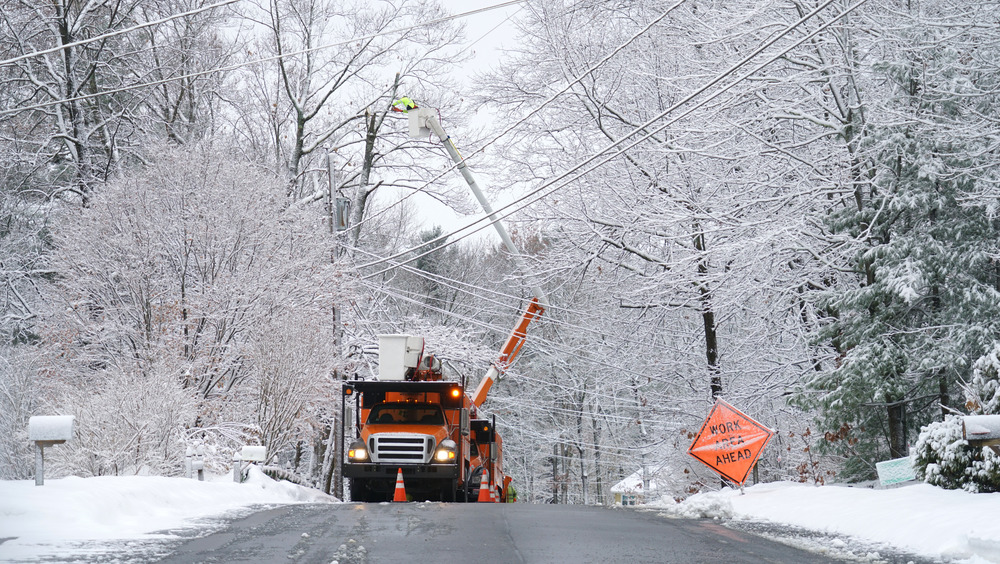What To Do With Food If You Lose Power During A Snowstorm, According To The USDA
Bad weather can make any day so much worse, especially if it knocks out your power. This phenomenon might happen more than you expect. According to Climate Central, almost 20 percent of US power outages come as a result of icy weather and heavy snowfall. These outages can cause all sorts of damage, ranging from the loss of heat in one's home, all the way to food spoilage. When our freezers and refrigerators go out, it might seem tempting to pack all of our perishables into a bag and set it in the snow until the power comes back on. When the lights go out, take a moment to think about this decision before you move all of your frozen food outside.
When the power goes out, food doesn't have to be the first thing on your mind. According to the USDA, a fridge can keep food safe for four hours if no one opens it, while a tightly packed freezer can keep your goods chilled for up to 48 hours. Even if your frozen dinners and ice cream begins to melt, don't assume you have to throw it away. Most items can get safely refrozen if they never warmed above 40 degrees Fahrenheit, so you have even more time than you might anticipate. The USDA suggests checking the appliance thermometer once the power comes back on and checking for ice crystals on your frozen foods. While these solutions might provide some short-term answers, those of us facing longer outages might have to plan differently.
A safe way to store food until the power comes back
If you have gone hours without power and it looks like you might have to go for an extended period without your fridge, don't panic! Instead of whisking all of your food outside to sit in the snow, take advantage of the cold weather to make ice instead. According to Food and Wine, fill any containers you have on hand with water and set them outside to freeze. You can then remove this ice and place it in your freezer or fridge to keep your food safe.
While putting your items out in the snow seems like it would keep food cool, it might lead to some dangerous spoilage. According to the USDA, food exposed to the sun can still thaw, allowing for food spoilage to happen. The food also falls at risk of coming into contact with animals and unsanitary conditions, increasing the chance of foodborne illness if you consume it. Keep you and your family safe by following these guidelines next time your fridge loses power and avoid any unnecessary panic.

